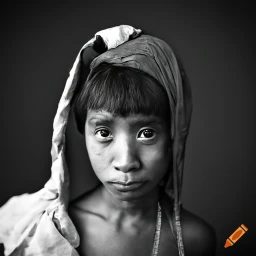Why Pakistan army is rich and its people poor?
Allocation of Defense Funds: Pakistan spends a significant amount of its budget on defense, which includes military funding. The population's overall well-being may be impacted by this allocation, which may limit resources available for other crucial areas like infrastructure development, healthcare, and education.
Financial Disparity: Pakistan faces difficulties related to economic inequality like many other nations. Income disparities and poverty among the population are caused by inadequate access to high-quality education and healthcare, a lack of employment opportunities, and an uneven distribution of resources.
Manipulation and corruption: Both within military and civilian institutions, instances of corruption and mismanagement can impede socioeconomic development and exacerbate wealth disparities. The wealth gap between the wealthy and the poor continues to grow as funds meant for public welfare, infrastructure, and social programs are diverted by corruption.
According to experts based in Pakistan, the Pakistani military has access to assets and businesses worth more than $20 billion. No financial crisis has been allowed to have any effect on this. The level of money related control that the Pakistan military exercises is thrilling.
The nuances of the assets asserted by the Pakistan equipped power were definitively shared by the Pakistan Security Administration in July 2016 with people from the Pakistan Senate. These include 50 hotel projects that are managed by a few establishments, oil and gas drilling projects, study farms, a flying company, and a diesel manufacturing company that has partnered with ExxonMobil, the largest oil and gas company in the world with its headquarters in the United States.
The "Military Government Assistance Trust" (AWT), a combination that emerged in 1971 and is entirely overseen by high-ranking representatives of the Pakistani armed force, oversees all of these and many other organizations whose capital is produced by Pakistan's top commanders over the long term.
Those following the progressions in Pakistan express that most of these associations — which are obliged by the military by suggestion through saves — have somewhere near 120 components that are basically into each piece of life, from phosphorus, flying, sugar and garments to academic establishments and even security officials.
"A significant number of these organizations serve as cloaks and as a cover for accepting kickbacks from arms dealers. They are safeguarded by any 'outside hindrance' from the normal divisions. The Safeguard Lodging Specialists (DHAs) in Karachi, Lahore, Rawalpindi-Islamabad, Multan, Gujranwala, Bahawalpur, Peshawar, and Quetta have a significant impact on the nation's prime regions. An authoritative source stated, "These are the fronts utilized by serving and resigned commanders to gain properties throughout the nation."
Ayesha Siddiqa, a Pakistani military researcher who also held the position of chief in the Pakistan naval force, wrote in a book published in May 2007 that the value of the capital restricted by Pakistani military officials at the time was $20 billion.






No comments:
Post a Comment